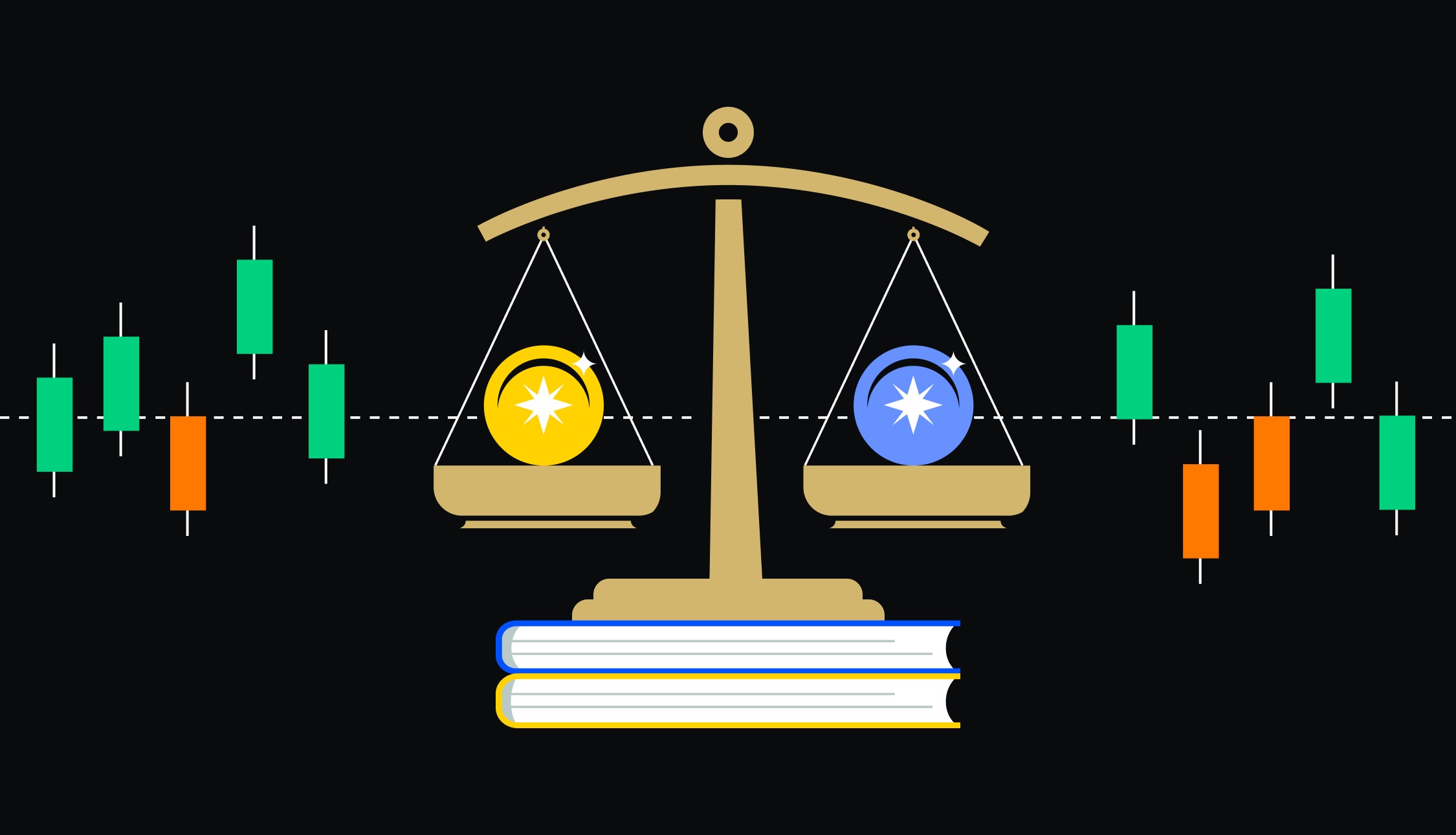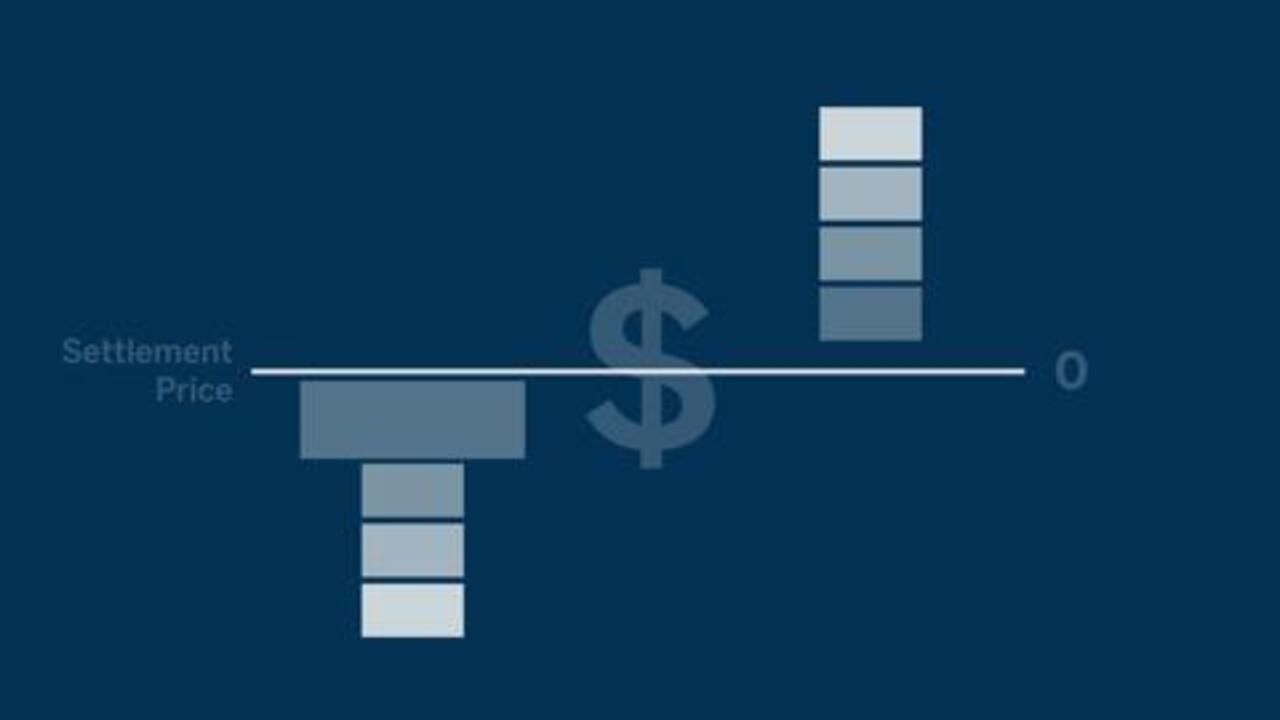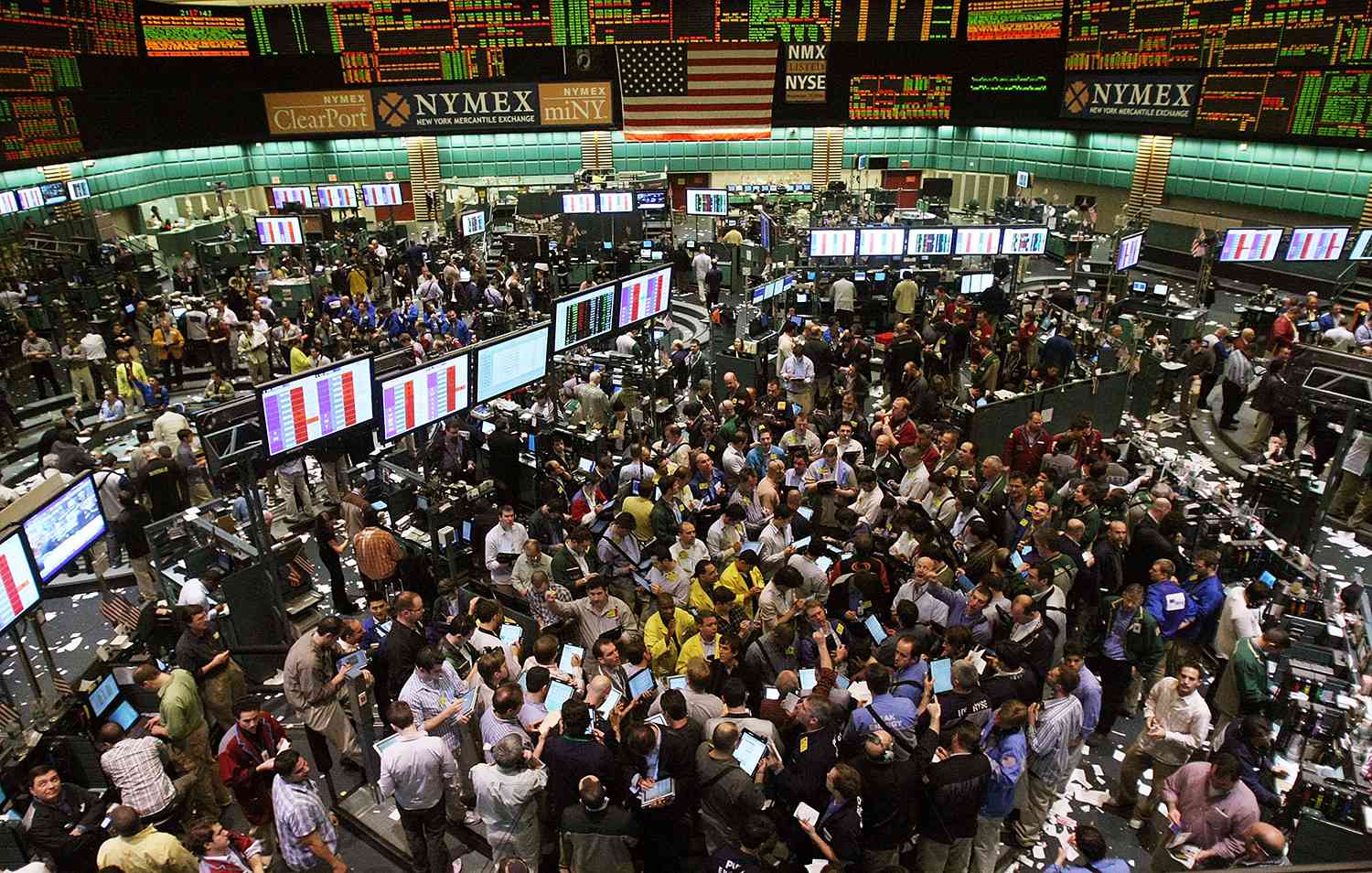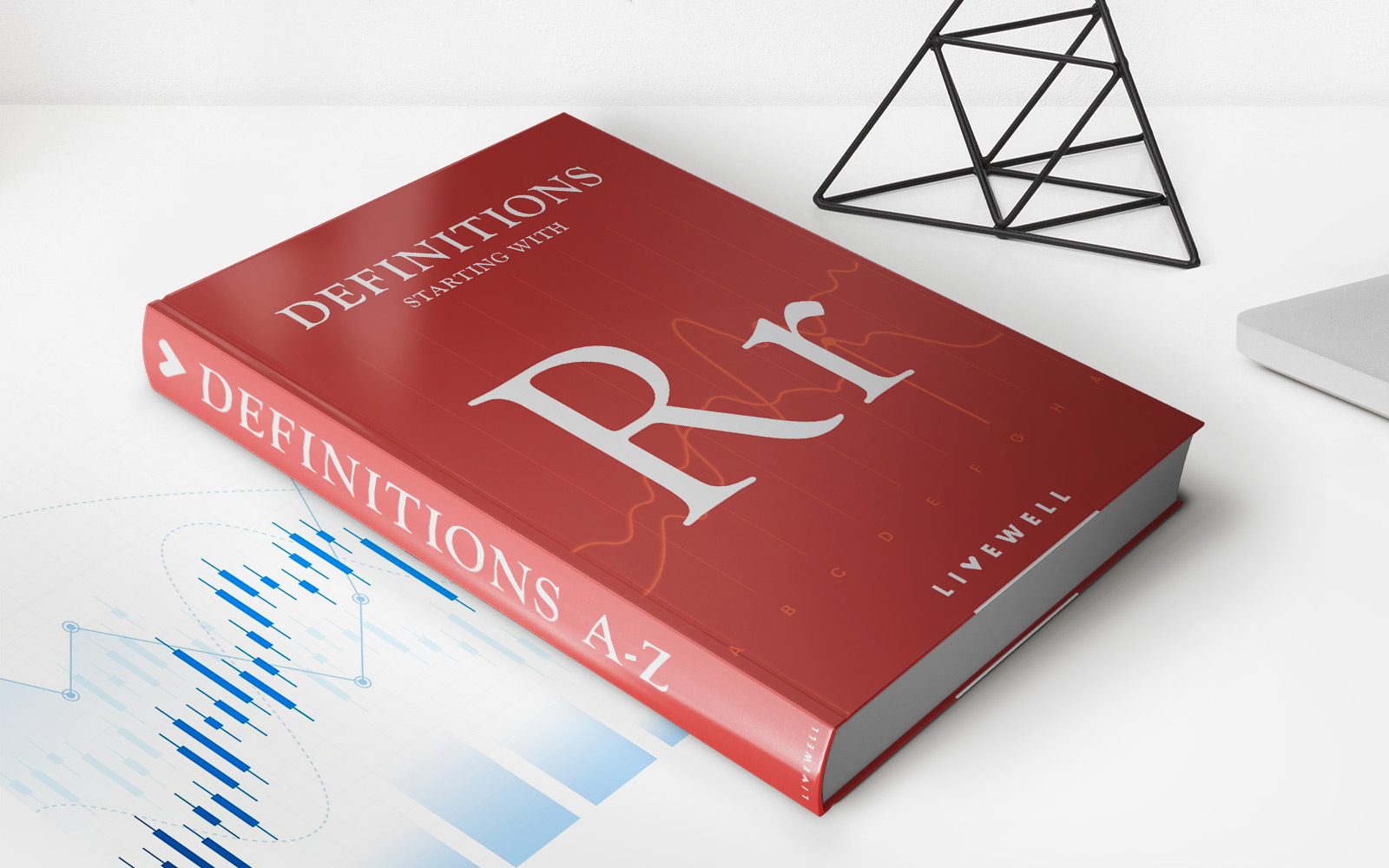

Finance
What Laws Regulate Futures Contracts
Modified: February 21, 2024
Learn about the legal regulations governing futures contracts in the finance industry. Discover how these laws impact trading and protect investors.
(Many of the links in this article redirect to a specific reviewed product. Your purchase of these products through affiliate links helps to generate commission for LiveWell, at no extra cost. Learn more)
Table of Contents
- Introduction
- Definition of Futures Contracts
- Purpose and Benefits of Futures Contracts
- Regulatory Bodies governing Futures Contracts
- Key Laws Regulating Futures Contracts
- Commodity Futures Trading Commission (CFTC)
- Securities and Exchange Commission (SEC)
- National Futures Association (NFA)
- Differences between Exchange-Traded and Over-The-Counter Futures Contracts
- Conclusion
Introduction
Futures contracts are a vital component of the global financial markets, facilitating the trading of commodities, currencies, and financial instruments. These contracts enable traders and investors to speculate on the price movements of underlying assets or hedge against potential risks.
In this article, we will explore the laws and regulatory bodies that govern futures contracts, ensuring transparency, fairness, and stability in the marketplace. The regulatory framework surrounding futures contracts is essential in maintaining investor confidence and protecting market participants from fraudulent activities.
Understanding the laws and regulatory bodies that oversee futures contracts is critical for anyone involved in trading or investing in these financial instruments. It provides insights into the rules and regulations that govern market behavior, ensuring a level playing field for all participants.
Moreover, having a comprehensive understanding of the regulatory landscape governing futures contracts enables traders and investors to make well-informed decisions while adhering to compliance requirements.
Let’s dive deeper into the world of futures contracts and explore the laws and regulatory bodies that shape their operation.
Definition of Futures Contracts
A futures contract is a standardized agreement between two parties to buy or sell a specified asset, such as commodities, currencies, or financial instruments, at a predetermined price and date in the future. These contracts are traded on regulated exchanges and function as a form of derivative, deriving their value from the underlying asset.
The key elements of a futures contract include the type and quantity of the underlying asset, the agreed-upon price, and the delivery or settlement date. This standardized format ensures liquidity and facilitates efficient trading between market participants.
One of the unique features of futures contracts is the obligation to fulfill the terms of the contract upon its expiration. This means that both the buyer and seller are bound to complete the transaction, either by physical delivery of the underlying asset or through cash settlement.
Futures contracts serve various purposes for market participants. They allow producers and suppliers to hedge against price volatility, ensuring a predictable income stream and protecting against potential losses. Investors and speculators, on the other hand, can profit from price movements by taking long or short positions in futures contracts without owning the underlying asset.
The standardized nature of futures contracts also provides transparency and price discovery mechanisms in the market. As these contracts are traded on regulated exchanges, the prices are publicly available, allowing all participants to access fair and competitive markets.
It’s important to note that futures contracts are different from forward contracts. While both involve agreements to buy or sell an asset at a future date, futures contracts are standardized and traded on exchanges, whereas forward contracts are customizable and traded over-the-counter (OTC).
Now that we have a clear understanding of what futures contracts are, let’s explore the purpose and benefits they offer to market participants.
Purpose and Benefits of Futures Contracts
Futures contracts serve several important purposes and offer key benefits to market participants:
Hedging: One of the primary purposes of futures contracts is to provide a means of hedging against price volatility. Producers and suppliers of commodities can use futures contracts to lock in prices for their products, protecting themselves from potential losses due to adverse price movements. For example, an oil producer can sell futures contracts to mitigate the risk of a price drop, ensuring a predictable revenue stream.
Speculation and Profit Potential: Futures contracts offer opportunities for investors and speculators to profit from price movements without owning the underlying asset. Traders can take long positions (buying contracts) if they anticipate that prices will rise or take short positions (selling contracts) if they expect prices to fall. Speculation in futures markets plays a crucial role in enhancing market liquidity and efficient price discovery.
Price Discovery and Transparency: The trading of futures contracts on regulated exchanges contributes to the transparent and efficient price discovery process. As these contracts are publicly traded, the prices are readily available to all market participants. This transparency ensures fairness and competitiveness in the marketplace, allowing investors to make well-informed decisions.
Leverage: Futures contracts allow investors to gain exposure to a large amount of an underlying asset with a relatively small initial investment. This leverage can amplify potential returns but also increases risk. It is important for traders to carefully manage their risk exposure when using leverage in futures trading.
Portfolio Diversification: Futures contracts provide an opportunity for portfolio diversification. By including different types of futures contracts in a portfolio, investors can spread their risk across various asset classes and reduce their exposure to specific market movements. This diversification can enhance the overall risk-adjusted returns of the portfolio.
Arbitrage Opportunities: Futures markets offer arbitrage opportunities, where traders can profit from price discrepancies between related assets or markets. Arbitrageurs exploit price differences by buying low and selling high, contributing to market efficiency and narrowing price spreads between different trading venues.
Regulatory Safeguards: Trading futures contracts on regulated exchanges provides market participants with regulatory safeguards. The presence of regulatory bodies ensures fair and transparent trading practices, protects against fraud and market manipulation, and promotes market integrity and investor confidence.
Overall, futures contracts play a crucial role in the global financial markets by enabling hedging, speculation, price discovery, and risk management. Understanding the purpose and benefits of futures contracts empowers market participants to utilize these powerful financial tools to their advantage.
Regulatory Bodies governing Futures Contracts
Futures contracts are subject to oversight by regulatory bodies to ensure fair and transparent markets, protect investors, and maintain the integrity of the financial system. These regulatory bodies play a crucial role in overseeing the operation of futures markets and enforcing compliance with applicable laws and regulations.
Let’s take a look at some of the key regulatory bodies that govern futures contracts:
- Commodity Futures Trading Commission (CFTC): The CFTC is an independent regulatory agency in the United States that oversees futures and options markets. It was established under the Commodities Futures Trading Commission Act of 1974. The CFTC’s primary mission is to protect market participants from fraud, manipulation, and abusive practices. It regulates futures exchanges, ensures fair trading practices, and enforces compliance with disclosure and reporting requirements.
- Securities and Exchange Commission (SEC): Although primarily responsible for regulating securities markets, the SEC also has jurisdiction over certain types of futures contracts. The SEC’s role in overseeing futures contracts is mainly focused on contracts that fall under the definition of securities, such as certain financial derivatives. The SEC aims to protect investors, maintain fair and efficient markets, and facilitate capital formation.
- National Futures Association (NFA): The NFA is a self-regulatory organization in the United States that operates as the industry-wide regulatory body for the futures industry. It was established under the Commodity Exchange Act and works in conjunction with the CFTC. The NFA regulates the activities of futures commission merchants, commodity trading advisors, commodity pool operators, and other market participants. It sets regulatory standards, conducts audits and inspections, and enforces compliance with industry regulations.
- Financial Conduct Authority (FCA): In the United Kingdom, futures markets are regulated by the FCA, which is a financial regulatory body. The FCA’s role includes supervising and enforcing regulations for trading futures contracts, ensuring market integrity, and protecting consumers. It sets conduct standards, supervises market participants, and licenses and regulates exchanges and clearinghouses.
- Various Local and Regional Authorities: In addition to global regulatory bodies, futures markets are subject to oversight by local and regional authorities in different jurisdictions. These authorities may have specific regulations and requirements for the trading of futures contracts within their respective markets. Examples include the European Securities and Markets Authority (ESMA) in the European Union and the Financial Services Agency (FSA) in Japan.
It’s important for market participants to understand the regulatory bodies governing the futures contracts they trade or invest in. Compliance with regulatory requirements is essential for maintaining market integrity, protecting investors, and mitigating systemic risks.
Next, we will discuss the key laws that regulate futures contracts and the obligations they impose on market participants.
Key Laws Regulating Futures Contracts
Futures contracts are subject to specific laws and regulations that are designed to ensure fair and transparent trading, protect market participants, and maintain the integrity of the financial system. Understanding these key laws is essential for market participants to comply with their obligations and operate within the legal framework of futures trading.
Let’s explore some of the main laws that regulate futures contracts:
- Commodity Exchange Act (CEA): The CEA is a federal law in the United States that provides the regulatory framework for futures and options trading. It grants the Commodity Futures Trading Commission (CFTC) the authority to oversee and regulate futures markets. The CEA covers a wide range of topics, including market manipulation, fraud, registration and licensing requirements for market participants, reporting and disclosure obligations, and the formation and operation of futures exchanges.
- Securities Exchange Act of 1934: This U.S. federal law primarily regulates securities markets, but it also extends its jurisdiction to certain types of futures contracts that are considered securities. The Securities Exchange Act imposes disclosure and reporting requirements for futures contracts that fall under its jurisdiction. It also prohibits fraudulent and manipulative practices in trading activities.
- Commodity Futures Modernization Act (CFMA): Enacted in the United States in 2000, the CFMA aimed to modernize and streamline the regulation of futures and derivatives markets. It clarified the legal status of certain derivatives and provided legal certainty for over-the-counter (OTC) derivatives. The CFMA also exempted certain transactions from regulatory oversight, establishing a framework for swaps and other OTC derivatives.
- European Market Infrastructure Regulation (EMIR): EMIR is a European Union regulation that sets out the obligations for derivatives markets participants, including those trading in futures contracts. It introduces requirements for central clearing, trade reporting, risk mitigation techniques, and the authorization and supervision of central counterparties. EMIR enhances transparency and stability in European derivatives markets.
- Local and Regional Laws: In addition to global laws and regulations, futures contracts may be subject to specific laws in different jurisdictions. For example, the Exchange Control Act in South Africa regulates the derivatives market, while the Financial Instruments and Exchange Act in Japan oversees futures trading in the country. These laws establish requirements for licensing, reporting, and compliance with local regulations.
Market participants must carefully navigate these laws and regulations to ensure compliance with their obligations. Violations of these laws can result in severe consequences, including fines, penalties, and even criminal charges.
It is important for traders, investors, and other participants in futures markets to stay up-to-date with the latest developments in regulatory requirements, as well as any amendments or new laws that may impact their trading activities.
Next, we will explore the roles and responsibilities of the regulatory bodies that govern futures contracts.
Commodity Futures Trading Commission (CFTC)
The Commodity Futures Trading Commission (CFTC) is an independent regulatory agency in the United States that oversees futures and options markets. It was established in 1974 under the Commodity Futures Trading Commission Act, with the primary mission of protecting market participants and the public from fraud, manipulation, and abusive practices in the futures industry.
The CFTC plays a pivotal role in regulating futures contracts and ensuring the integrity of the derivatives market. Here are some key aspects of the CFTC’s responsibilities and functions:
- Market Oversight: One of the primary responsibilities of the CFTC is market oversight. It monitors and regulates the operation of futures exchanges, ensuring fair and transparent trading practices. The agency enforces compliance with trading rules, investigates market manipulation and abusive practices, and takes action against individuals or entities that violate regulations.
- Registration and Compliance: The CFTC requires various market participants, such as futures commission merchants, commodity trading advisors, and commodity pool operators, to register and comply with specific regulations. The registration process involves background checks, financial reporting, and adherence to specific capital and risk management requirements.
- Customer Protection: The CFTC places a strong emphasis on protecting customer funds and promoting market integrity. It enforces rules related to customer protection, segregation of customer funds, and the proper handling of customer accounts. The agency also provides guidance and resources to help market participants understand their rights and protections as customers.
- Rulemaking and Regulation: The CFTC has the authority to promulgate rules and regulations that govern the futures and options industry. It establishes and updates regulations to adapt to changing market conditions, technological advancements, and emerging risks. The rulemaking process involves public comment periods and engagement with market participants and stakeholders to ensure fairness and transparency.
- International Cooperation: The CFTC actively engages in international cooperation and collaboration with regulatory bodies around the world. It works closely with international counterparts to harmonize regulations, share information, and coordinate enforcement actions. This global cooperation aims to foster consistent regulatory standards and enhance the oversight of cross-border derivatives trading.
- Educational Initiatives: In addition to its regulatory functions, the CFTC is committed to educating the public about futures and options trading. It provides resources, publications, and educational programs to help individuals understand the risks and benefits associated with derivatives trading. The agency also conducts outreach activities to promote financial literacy and informed decision-making.
The CFTC’s regulatory framework enables fair and transparent futures markets, fosters investor confidence, and helps mitigate systemic risks. Its oversight role helps ensure that market participants adhere to ethical practices and comply with regulatory requirements.
Traders, investors, and other stakeholders in the futures industry should stay informed about the CFTC’s regulatory updates and guidelines to effectively navigate the regulatory landscape and operate within the boundaries of the law.
Securities and Exchange Commission (SEC)
The Securities and Exchange Commission (SEC) is a regulatory agency in the United States that primarily oversees securities markets. However, it also has jurisdiction over certain types of futures contracts that fall under the definition of securities. The SEC plays a crucial role in maintaining fair and efficient markets while protecting investors.
Here are some key aspects of the SEC’s responsibilities and functions in relation to futures contracts:
- Regulation and Enforcement: The SEC is responsible for enforcing federal securities laws and regulations, including those that apply to certain types of futures contracts that are considered securities. It ensures compliance with disclosure requirements, investigates potential violations, and takes legal action against individuals or entities engaged in fraudulent or manipulative practices in the futures market.
- Investor Protection: The SEC places a strong emphasis on protecting investors’ interests. This includes ensuring fair and transparent trading practices, promoting the dissemination of accurate and timely information, and enforcing regulations that safeguard investors from fraudulent activities. The SEC also educates investors about the risks and benefits associated with futures contracts and provides resources to help investors make informed decisions.
- Market Surveillance: The SEC conducts market surveillance to detect potential misconduct and monitor market activities that may impact securities markets, including certain types of futures contracts. It collects and analyzes data on trading activities, market trends, and systemic risks to identify potential violations and take appropriate regulatory actions.
- Rulemaking and Guidance: The SEC has the authority to establish regulations and provide guidance related to futures contracts that fall under its jurisdiction. It promulgates rules to enhance market transparency, protect investors, and address emerging issues within the securities and futures markets. The SEC also issues interpretive guidance to help market participants understand and comply with regulatory requirements.
- Exchanges and Self-Regulatory Organizations (SROs): The SEC oversees securities exchanges and self-regulatory organizations (SROs). It reviews and approves exchanges’ listing standards, rules, and procedures relating to the trading of securities and certain types of futures contracts. The SEC ensures that exchanges and SROs maintain fair and efficient markets and adhere to regulatory obligations.
- International Cooperation: The SEC engages in international cooperation and collaboration with regulatory bodies worldwide. It works with international counterparts to harmonize regulatory standards, promote cross-border supervision, and share information to address global market challenges. This cooperation strengthens the oversight of securities and certain futures markets on a global scale.
The SEC’s regulatory oversight aims to promote transparency, safeguard investor interests, and ensure the integrity and stability of securities markets, including certain types of futures contracts. Market participants should stay abreast of the SEC’s regulatory updates and guidelines to comply with securities laws and operate within the boundaries of the regulatory framework.
National Futures Association (NFA)
The National Futures Association (NFA) is a self-regulatory organization (SRO) in the United States that operates as the industry-wide regulatory body for the futures industry. It was established under the Commodity Exchange Act (CEA) and works in conjunction with the Commodity Futures Trading Commission (CFTC) to regulate the activities of various market participants involved in futures trading.
Here are the key responsibilities and functions of the NFA:
- Registration and Compliance: The NFA requires businesses and individuals engaged in futures-related activities, such as futures commission merchants, commodity trading advisors, and commodity pool operators, to register and comply with specific regulations. It conducts thorough background checks, enforces disclosure requirements, and establishes stringent capital requirements to ensure market participants’ integrity and financial stability.
- Regulatory Standards and Code of Conduct: The NFA sets regulatory standards and implements a code of conduct for all its members. These standards cover a wide range of areas, including business operations, recordkeeping, reporting, and customer protection. Members must adhere to these standards to maintain their membership with the NFA.
- Risk Management and Audits: The NFA conducts regular risk management assessments and audits of its members to ensure compliance with regulatory standards and assess financial soundness. It oversees risk management practices, including measures taken to protect customer funds and manage market, credit, and operational risks.
- Dispute Resolution: The NFA operates a dispute resolution program that handles customer complaints and disputes in the futures industry. It provides a forum for resolving disputes between customers and NFA members through mediation and arbitration processes. The NFA’s dispute resolution program offers a fair and efficient means of resolving conflicts to protect the interests of both customers and industry professionals.
- Oversight of Exchanges and Clearinghouses: The NFA collaborates with exchanges and clearinghouses to ensure fair and transparent trading practices. It reviews the rules and procedures of exchanges and clearinghouses to ensure compliance with regulatory requirements. The NFA’s oversight helps maintain the integrity of the futures markets and supports market stability.
- Educational Initiatives: The NFA is committed to educating the public about the futures industry and fostering investor protection and awareness. It provides educational resources, training programs, and publications to help individuals understand the risks and benefits of futures trading. The NFA also promotes industry best practices and encourages informed decision-making among market participants.
By enforcing regulatory standards, conducting audits, and providing educational resources, the NFA plays a critical role in ensuring the integrity of the futures industry. It strives to protect market participants, maintain fair and transparent markets, and foster investor confidence in the futures markets.
Market participants should be aware of the NFA’s regulations and comply with their obligations to operate within the bounds of ethical and legal standards. Understanding the NFA’s role enhances market participants’ understanding of the regulatory environment and allows them to navigate the futures market effectively.
Differences between Exchange-Traded and Over-The-Counter Futures Contracts
Futures contracts can be traded either on exchanges or over-the-counter (OTC), and understanding the differences between these two types of contracts is crucial for market participants. Here are the key distinctions between exchange-traded and over-the-counter futures contracts:
- Standardization: Exchange-traded futures contracts are standardized in terms of the underlying asset, contract size, delivery terms, and expiration dates. These standardized contracts allow for broad market participation and facilitate liquidity. On the other hand, OTC futures contracts are customizable and tailored to the specific needs of the parties involved, offering more flexibility but potentially reducing market liquidity.
- Trading Platform: Exchange-traded futures contracts are bought and sold on regulated exchanges, with trades executed via the exchange’s central order book. This provides transparency, price discovery, and efficient matching of buy and sell orders. OTC futures contracts, on the other hand, are traded directly between parties, without the involvement of a central exchange. Trades are typically negotiated privately, either bilaterally or through electronic platforms.
- Counterparty Risk: In exchange-traded futures contracts, the exchange acts as the intermediary, creating standardized contracts and acting as the counterparty to both the buyer and the seller. This reduces counterparty risk, as the exchange guarantees the performance of the contract. In OTC futures contracts, the counterparty risk is higher, as the contract is directly negotiated between parties without the oversight of a central clearing entity. Counterparty credit risk assessments become crucial in OTC transactions.
- Market Access: Exchange-traded futures contracts provide market participants with access to a broader pool of buyers and sellers, as they are traded on regulated exchanges. The centralized and transparent nature of exchange-traded contracts ensures fair and efficient trading. OTC futures contracts provide more flexibility in terms of counterparties, but market access may be limited to a narrower network of participants.
- Margin and Clearing: Exchange-traded futures contracts typically require margin deposits to provide collateral for the contract’s performance. The exchange’s clearinghouse ensures the settlement and transfer of funds and securities to minimize counterparty risk. OTC futures contracts may also require margin deposits, but clearing and settlement arrangements may vary, introducing additional complexities.
- Regulation and Oversight: Exchange-traded futures contracts are subject to regulatory oversight by government entities, such as the Commodity Futures Trading Commission (CFTC) in the United States. The trading rules and practices on exchanges are strictly regulated and monitored for fairness and transparency. OTC futures contracts are subject to less regulatory oversight, and the terms of the contract are usually negotiated privately between parties.
Understanding the differences between exchange-traded and over-the-counter futures contracts helps market participants choose the most suitable trading approach based on their specific needs, preferences, and risk tolerance. Exchange-traded contracts offer standardized terms, transparency, and reduced counterparty risk, while OTC contracts offer more flexibility and customization options.
Both exchange-traded and over-the-counter futures contracts play significant roles in the derivatives market, providing avenues for risk management, speculation, and investment opportunities. It is important for market participants to assess their requirements and evaluate which type of futures contract aligns best with their trading strategies and objectives.
Conclusion
Futures contracts are essential financial instruments that facilitate trading and investment in various asset classes, including commodities, currencies, and financial instruments. Understanding the laws and regulatory bodies governing futures contracts is crucial for market participants to operate within a fair, transparent, and regulated environment.
In this article, we explored the definition of futures contracts and their purpose in hedging against price volatility and providing opportunities for speculation and profit potential. We discussed the key regulatory bodies overseeing futures contracts, including the Commodity Futures Trading Commission (CFTC) in the United States, the Securities and Exchange Commission (SEC), and the National Futures Association (NFA). These regulatory bodies enforce compliance with regulations, ensure market integrity, and protect investors.
We also examined the key laws regulating futures contracts, such as the Commodity Exchange Act (CEA) and the Securities Exchange Act of 1934. These laws establish the regulatory framework, disclosure requirements, and obligations for market participants in the futures industry.
Furthermore, we explored the differences between exchange-traded and over-the-counter futures contracts, highlighting factors like standardization, trading platform, counterparty risk, market access, margin, clearing, and regulation. Understanding these distinctions helps market participants choose the most suitable approach based on their needs and risk preferences.
In conclusion, futures contracts provide opportunities for risk management, speculation, and asset diversification. Adhering to regulatory requirements, understanding the role of regulatory bodies, and navigating the legal frameworks are essential for market participants to ensure compliance, safeguard investor interests, and maintain the integrity of futures markets. By staying informed and adhering to regulatory guidelines, market participants can take advantage of the benefits offered by futures contracts while mitigating potential risks.














